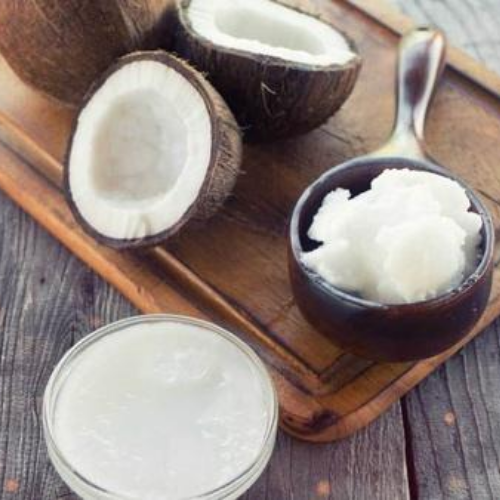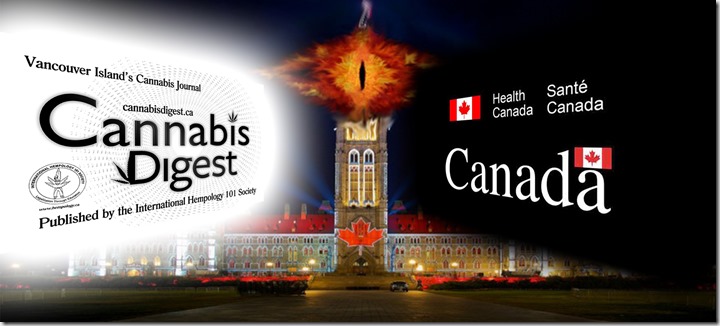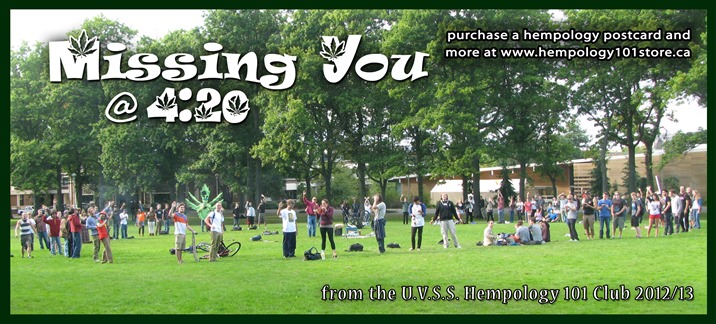The Decriminalization of Small Quantities of Ganja Is a Must
By Robert Gordon (Ras Kahleb)
All throughout Jamaica’s roughly 360-year history under the British Westminster constitutional system, the Cannabis culture has been suppressed, and those who have indulged in it badly oppressed. It is the view of a few that, on some slave plantations throughout the Caribbean, Cannabis cultures may have existed clandestinely, especially since African spiritual practices, which included magic and divination, were both feared and made illegal by the planters—but not through legislation. Presently, the Cannabis culture in Jamaica persists, and in a pretty vibrant way. Of all the medicinal herbs that exist in Jamaica—and there are plenty—Ganja is the single most  sought-after herb that is easily accessible to locals and visitors alike. Today, Ganja tours are even becoming more frequent than ever before, offering visitors a relaxing aroma therapeutic experience. However, after 50 years of Jamaican independence, the illegality of Ganja is still aggressively enforced by a brutal neo-colonial justice system despite future plans for its decriminalization. Although politicians and legislatures are again having talks and discussions about the illegal status of Cannabis in the country, aims for its legalization by the Jamaican government seem to be farfetched. But why is this? Do Jamaican politicians feel America would unleash her wrath on the country if Ganja were to be decriminalized?
sought-after herb that is easily accessible to locals and visitors alike. Today, Ganja tours are even becoming more frequent than ever before, offering visitors a relaxing aroma therapeutic experience. However, after 50 years of Jamaican independence, the illegality of Ganja is still aggressively enforced by a brutal neo-colonial justice system despite future plans for its decriminalization. Although politicians and legislatures are again having talks and discussions about the illegal status of Cannabis in the country, aims for its legalization by the Jamaican government seem to be farfetched. But why is this? Do Jamaican politicians feel America would unleash her wrath on the country if Ganja were to be decriminalized?
According to Jamaica’s past Solicitor General, Michael Hylton, this may well be the case, as he once stated that: “[I]f Jamaica were to decriminalise marijuana for personal use, there would be a distinct risk that the country would be subject to the sanctions associated with decertification,” (Jamaica Observer, 2003). The Solicitor General also told the committee, almost in a warning way that, “Jamaica is currently a party to three international conventions concerning illicit drugs: The Single Convention on Narcotic Drugs of 1961 and amended in 1972, which Jamaica acceded to on Oct. 6, 1989 […] The Convention on Psychiatropic Substances of 1971, in which Jamaica acceded to on Oct. 6, 1989 […] The United Nations Convention against Illicit Traffic in Narcotic Drugs and Psychotropic Substances of 1988 that Jamaica acceded to on the Dec. 29, 1995 […] All three conventions adopt a restrictive approach to marijuana use and, in the interest of brevity, illustrated how implementation of the Ganja Commission’s first recommendation would cause Jamaica to be in breach of the Single Narcotics Convention” (Ibid). I argue that the fear of the U.S. has been instilled in the Jamaican politicians who also seem to be in support of U.S. interests in the region for the purpose of receiving benefits. But as a result of recent successful legalizing legislation passed in Washington and Colorado, Jamaican Minister of Justice Mark Golding said in an interview with The Gleaner, “We think that it is possible to adjust the laws that now exist to make this negative social implication of treating them [persons found with small quantities of ganja] as outright criminal offenses attracting criminal records, without violating our international obligations and we are working towards that presently” (The Gleaner, 16/09/13). Furthermore, Golding declared an important step to be taken toward the decriminalization of small quantities of ganja when he recently stated, “I brought a submission to Cabinet seeking approval of amendments to the criminal records expungement legislation to provide for (among other things) the automatic expungement of criminal records for convictions for possession of small quantities (or smoking) of ganja” (Ibid). The Justice Minister also added, “Cabinet approved that submission and drafting instructions were then issued to the Office of Parliamentary Counsel for the bill to be prepared” (Ibid).
It was during an international conference in Jamaica held in June this year, aimed at pushing Jamaica’s ganja legislation in the right direction, that renowned attorney-at-law Lord Anthony Gifford told the Jamaica Observer that, “The Government has shown some sympathy to some decriminalisation measures and expunging from criminal records but, as in all things, things don’t happen until the people move and this conference will be a valuable tool for agitation” (Jamaica Observer, 15/06/13). Gifford further added, “We need to mobilise opinion, and I think Jamaican opinion is very favourable on the whole issue of the legalisation of ganja, but we need to get up, stand up, stand up for our rights,” (Ibid). According to Paul Chang, who is the chairman of the Ganja Law Reform Coalition (GLRC), on the topic of legalization and medicinal ganja, “We have a vibrant tourist market, a large part of which comes here to consume cannabis, and we would have to draft our reform legislation to allow licensed medical cannabis patients with permits issued by their home jurisdictions a method to legally access and consume their medicine in Jamaica” (The Gleaner, 09/08/13). Furthermore, in his support of the global shift toward a softening of the legal stance on Ganja, Chang said that, “In 2013, over 90 percent of Americans polled in favour of legal medical cannabis, and in May 2013, for the first time since United States national polling on the issue started, the majority of Americans polled in favour of total legalisation of cannabis for recreational use” (Ibid). In a brief conversation with Sister Mitzie Williams, who is a recent director of the GLRC and Chair of a Rastafari umbrella organization, the Ethio-African Union Diaspora Millennium Council (EAUDMC), on the topic of legalization of Ganja in Jamaica, she stated that, “[S]itting as a director of the GLRC, I would have to be representing the Rastafari community in its lasting effort to decriminalize Ganja in Jamaica and to legalize it as a holy sacrament unto Rastafari.” She further added that a meeting was presently being scheduled with the EAUDMC to discuss further objectives.
On this very topic, American Reverend Karl Johnson told The Gleaner newspaper one Sunday that “it is time for Jamaica to do just that” as he commented on the recent aim of the Jamaican Government to decriminalize small quantities of Ganja. He further added, “the fallout from the recent ballot initiatives passed in both Washington and Colorado to decriminalize the possession of small amounts of marijuana is being felt well beyond the borders of the two U.S. states” (Atlanta BlackStar, 10/12/2012). Historically, it was in 1913 that the colonial government of Jamaica, with the influence of elitist groups including the Christian church, passed legislation making Ganja use and cultivation a punishable crime. Since then, criminalization of the existing Cannabis culture practiced by the people at least since emancipation, has led to countless numbers of criminal convictions of Jamaicans, including youth, over the span of several generations. Important to highlight are the negative impacts of a Cannabis conviction in a third-world country like Jamaica, which has an increasingly poor economy. Besides being heavily fined for a parcel of Ganja weighing one ounce or more, respectable citizens can also serve lengthy prison sentences. Unfortunately, for many Cannabis convicts in Jamaica and the Caribbean, the inability to gain employment increases sevenfold. In addition a conviction and criminal record leaves the poor rural and urban Jamaican youth with zero opportunity to obtain a visiting visa for another country, and this actually leaves tens of thousands of youth landlocked, with little hope of ever escaping poverty.
When Jamaican politicians could no longer afford to import guns and ammunition into the country as a result of the rapid increase in both violent crimes and national insecurity, they retreated. Though there may have been a drastic decline in the importation of guns by politicians in Jamaica by the mid 1980s, it was by the early 1990s that ordinary Jamaicans who had criminal linkages with corrupt politicians begin to re-import rifles of choice into the island for the purpose of political dominance and fighting bloody turf wars. Ganja farmers were then coerced into planting larger amounts and were promised a fortune. Ganja production increased on the island as there was a constant market and demand for Jamaican Ganja in cities like Los Angeles, New York, and Miami, and countries such as Haiti, Colombia, and Nicaragua. Investigations have also discovered that most guns illegally imported to Jamaica were from the U.S. and this article suggests that hard cash alone was not used as payment, but also tons of Ganja as well. Furthermore, in their efforts to gain more power and wealth, Jamaican politicians used high-ranking members of criminal gangs and the police force to guard and protect their “guns for Ganja” trade that was quickly developing between the above mentioned cities and countries.
Evidently, both the hierarchy in Jamaica and other countries, along with well-organized criminal gangs are to be blamed for the present legal status of Ganja on the island. Jamaica is also presently the major port for the trans-shipment of Cocaine and Heroin to the region, and this has negatively affected the international image of the country and its inhabitants. However, because of international pressure, Peter Tosh’s wish for the full legalization of Ganja in Jamaica expressed in his song “Legalize It” still appears out of reach, especially since this holy herb as sacrament has not yet been decriminalized for spiritual and recreational uses and purposes. Aluta continua—the struggle continues.




